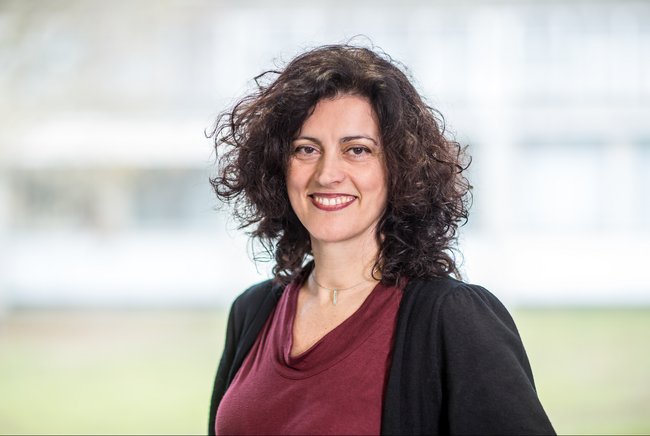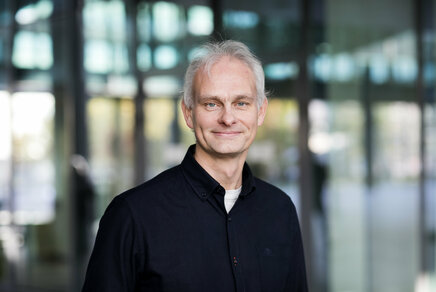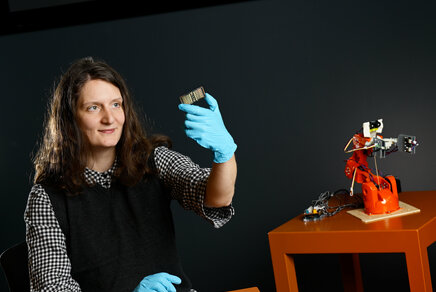Evangelia Demerouti: “We all can learn how to tweak our jobs”
In the latest episode of our Dutch-language podcast series Sound of Science, we focus on happiness in our work and the importance of a diverse university.

With the Netherlands once again in a (partial) lockdown, many people are working from home again. Stress, loneliness and sometimes even burnout are a real risk. According to Evangelia Demerouti, professor in the Human Performance Management group at the department of Industrial Engineering and Innovation Sciences, working from home, even after almost two years, remains a challenge. How do you stay motivated, and how do you best combine work and home?
When Demerouti, a psychologist by trade, found herself sitting at home last year, she initially liked the experience. "I could work quietly and undisturbed and think of new things." But she also saw the struggle in those around her. She decided to help them by developing a special tool that helps employees perform better at the home office through online training. "And the best part was, I was able to test it out on myself right away."
The four-week training program consists of short videos, exercises, daily self-set goals, and other information on strategies to stay healthy and motivated when working from home.
Job crafting
The online tool is an example of what Demerouti calls "job crafting. "Everyone has the ability to tweak their work to some extent to make it suit their own preferences," she says. "Even if you're an airplane pilot, or work on an assembly line."
That doesn't mean employers can lean back and do nothing, she says. "At least 70 percent of the responsibility for improving working conditions lies with the organization and not with the employee."
A big theme in Demerouti's research is burnout. "People develop burnouts when their task demands - that which is expected of them in their professional lives - , are structurally out of balance with their resources - that which they need to perform that task well."
To prevent burnouts, autonomy is crucial, says the researcher. "It ensures that the work you do matches what you want and can do. You have to feel that you have contributed something yourself."
Diversity
In the conversation with Lieven Scheire, Demerouti also talks extensively about her work as Chief Diversity Officer of TU/e. In that role she tries to make the university a more diverse and inclusive organization. For example, she was one of the people of the Irene Curie regulation, which opens up academic positions for six months exclusively to female applicants.
"We want to achieve that everyone feels welcome here, regardless of gender, ethnicity, or whatever. In the end, people who are in the majority also benefit," she says. "Every person has unique characteristics that they want to showcase. In a truly inclusive environment, they can."
Listen to the podcast
Want to know more about Eva Demerouti's research on happiness in your job and her work as Chief Diversity Officer? Then listen to the interview with Lieven Scheire here. Or go to your favorite podcast platform and search for 'Sound of Science'. Subscribe to the channel to be automatically notified of new episodes!
Media contact
Latest news


